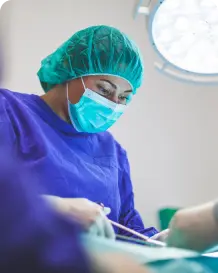Cystectomy Treatments in Bangalore
Cystectomy is a surgical procedure to remove all or part of the urinary bladder. Know all about the treatment in Bangalore. Cystectomy is a surgical procedure to remove all or part of the urinary bladder. Know all about the treatment in Bangalore.
Happy patients
 50+
50+
Expert surgeons
Personal Assistance







